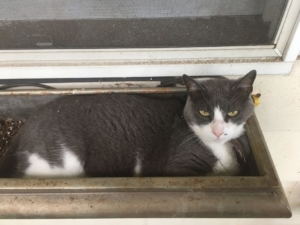Friday Facts and Figures is a brief digital newsletter focusing on data points from NJPP reports, research, and policy debates in New Jersey and beyond.
Sign up here.
COVID-19 Cases: 190,613 | Deaths: 14,141
[New Jersey Department of Health / COVID-19 Dashboard]
$5.63 Billion
On Tuesday, Governor Murphy hit the reset button on budget season with his second budget address of the year. The remarks, given before a socially distanced crowd at the Rutgers University football stadium, outlined the governor’s plan to fund state government for nine months, starting October 1 (for context, state lawmakers extended Fiscal Year 2020 by three months to better assess the impact of COVID-19 on the state’s finances). The big question going into the address was how Governor Murphy would propose closing the state’s $5.63 billion revenue shortfall. The answer: a combination of spending cuts, borrowing, and roughly $1 billion in new revenue — including the elusive millionaires’ tax and an extension of the corporate business tax surcharge. In this informal rapid reaction moderated by yours truly, NJPP analysts Sheila Reynertson, Vineeta Kapahi, and Brittany Holom discuss what they like in the budget proposal, what surprised them, and what’s missing. Come for the analysis, stay for the Bon Jovi gifs (seriously). [NJPP / Louis Di Paolo]
Fair Share
In response to Governor Murphy’s budget proposal, the ROI-NJ team asked NJPP President Brandon McKoy, at what point will the wealthiest individuals and biggest corporations be paying their “fair share?” Brandon’s answer, which ROI-NJ ran in full, is a must read. Brandon masterfully debunks every business lobby talking point on taxes, millionaire tax flight, and so much more. He also does an incredible job outlining how racial justice is inextricably linked to tax justice — and that you can’t have one without the other. Here’s a small sample, but again, I recommend you read the entire interview in full: “We know, in America, that wealth drives opportunity, it drives health, it drives security, etc. And we know, in America, the opportunity to develop wealth has been reserved for a select few because of explicit policies. The opportunity to get a home, the opportunity to get an education, the opportunity to take advantage of various programs like the GI Bill were closed to non-white Americans for a long time. So, the idea of, ‘Are we done?’ is crazy.” [ROI-NJ / Tom Bergeron]
$1,000
The biggest surprise in Governor Murphy’s budget: a $1,000 baby bond for every child born in families earning less than $131,000 a year. The proposal, meant to help close the racial wealth gap, is a scaled down version of a federal bill sponsored by Senator Cory Booker and would be the first state policy of its kind. The way it works is simple. The state would deposit $1,000 in an account for qualifying children, which would then be given to the child — with interest — when they turn 18. Dr. Darrick Hamilton, a leading economist on racial inequality and the keynote speaker at NJPP’s Celebration of Progress event on September 10, had this to say about the proposal: “The source of inequality generally is that some young adults have capital and others do not. The difference between a renter and a homeowner is a down payment. This is saying: Irrespective to the family you are born into, that you have a birthright to capital when you become an adult.” As it stands, white families in the U.S. have seven times more wealth than Black families due to decades of discriminatory and racist state and federal policies. [The New York Times / Tracey Tully]
$4.9 Billion
Governor Murphy’s budget not only protects key investments in the building blocks of our economy — in public education, tuition assistance, tax credits for working families, and much more — but it also makes the scheduled $4.9 billion pension payment. This was a big question mark going into the governor’s address, but he is standing firm behind it, saying, “If the pension payment in the budget is $4.9 billion, then the minimum amount that I’m prepared to make in the final deal is $4.9 billion. Period. There’s no negotiating room.” This is a smart move, as the state’s pension fund is severely underfunded as a direct result of previous administrations skipping payments when it was politically convenient. The less the state pays into the pension fund now, the more we’ll have to pay in the future. [NJ.com / Samantha Marcus]
First
In non-budget news, Fabiana Pierre-Louis is poised to become the first Black woman on New Jersey’s Supreme Court. On Thursday, the Senate voted 39-0 to confirm Pierre-Lewis, a former federal prosecutor and daughter of Haitian immigrants. Nominated by Governor Murphy in June, Pierre-Lewis will be just the third Black justice on the Supreme Court — and the first in a decade. At 39 years-old, she will also be the court’s youngest member. [NJ.com / Brent Johnson]
Time to Celebrate!
It should go without saying that 2020 has been a tough year for many, but that doesn’t mean we don’t have a lot to celebrate! Join your favorite wonks at NJPP, our distinguished honorees, and keynote speaker Dr. Darrick Hamilton for Celebration of Progress on Thursday, September 10 at 6:00PM. This is a free event and will include New Jersey-themed trivia. Register here! [NJPP / Celebration of Progress]
Have a fact or figure for us? Tweet it to @NJPolicy.






